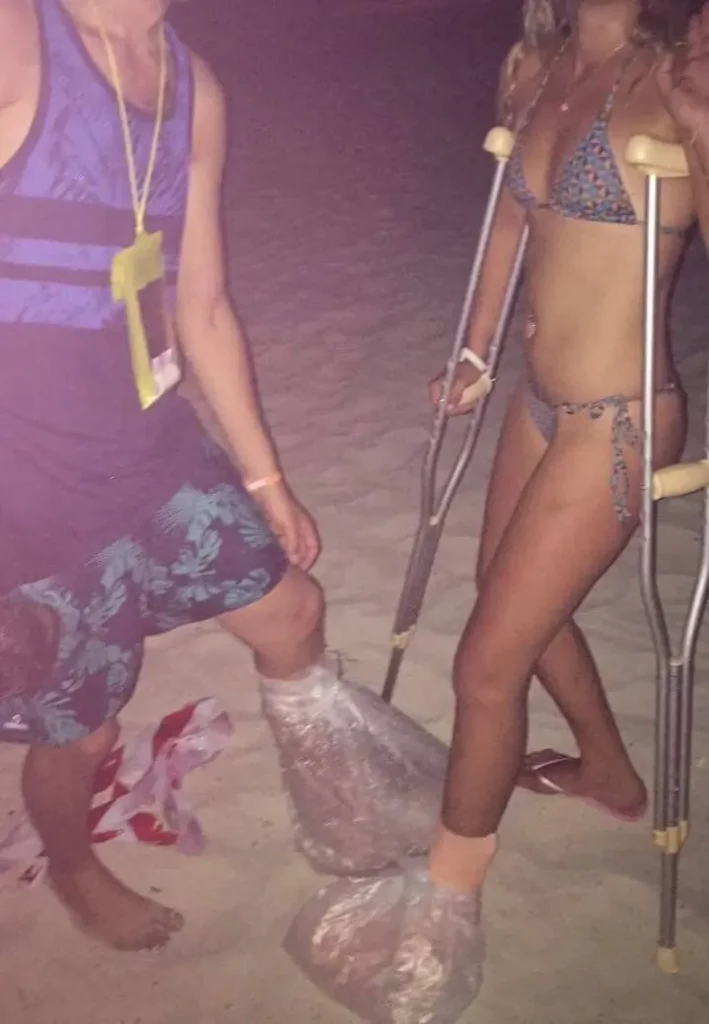Travel insurance should offer peace of mind, whether you’re insuring your health, valuables, or trip bookings. Unfortunately, not all offers and services you find online are genuine. Moreover, even some “legitimate” insurance providers aren’t always trustworthy or honest.
When booking a trip and searching for insurance online, travelers may fall victim to scams that promise protection and coverage but fail to deliver when needed. These scams range from cloned websites and fake insurance policies to unreliable companies that exploit legal loopholes.
Understanding how these frauds operate is key to ensuring your travel experience remains at least properly covered, meaning they’ll handle the costs directly or reimburse you for any expenses when problems arise.
1) How They Work
As mentioned, travel insurance scams typically target travelers seeking coverage for specific aspects of their trip, such as flight cancellations, lost luggage, valuable items, or medical emergencies.
When searching online or through sponsored posts on social media, potential victims can be misled by sophisticated, convincing websites or agencies that appear legitimate. The fraudsters behind these operations often disappear after payment is made or, worse, when a claim is filed and their services are most needed.
1.1 Funnel Tactics
In terms of marketing and funnel tactics used in these scams, you can refer to this related article – Fake booking websites and travel agency scams – 1.1 Funneling–. The strategies are often the same for travel insurance scams, whether involving cloned websites or fake travel insurance companies, or authorized but unreliable agencies.
Their marketing usually revolves around offering enticingly low prices, comprehensive coverage options, or limited-time deals to push potential victims into buying the policy without thinking too much—classic “too good to pass up” offers.
1.2 Cloned Websites and Fake Travel Insurance Companies
These are websites and apps that mimic reputable travel insurance companies almost perfectly. Alternatively, they pose as fake agencies or companies offering similar coverage at highly competitive prices.
Again, to avoid repetition, you can refer to this post – Fake booking websites and travel agency scams – 1.2 Harvesting – for more details on how and why scammers collect your information.
1.3 Authorized but Unreliable Travel Insurance Agencies
Even some authorized insurance companies engage in fraudulent or borderline legal practices. These agencies may have all the required certifications and licenses, but they’ll often have pre-arranged clauses or find loopholes to avoid covering what was promised to the customer.

2) What You Risk
The critical issue with travel insurance scams is that victims often realize they’ve been scammed only when they need the coverage most. These companies may refuse to pay for flight cancellations, lost luggage, or medical emergencies abroad, even when such events are clearly covered in the policy. In more extreme cases, the company might disappear entirely, leaving you without refunds and facing unexpected expenses on your own.
You might end up paying for nothing. Once scammers have your money, it might be almost impossible to get it back from them, especially if you used payment methods like wire transfers or gift cards, which are difficult to reverse.
Also, if you’ve fallen for a cloned website or fake insurance company scam, here’s what you might face:
- Theft of Funds: Fraudsters could drain your payment account or credit cards used as payment method.
- Identity Theft: Scammers often request more than just payment information. They might ask for your passport, ID, or other sensitive details, which can then be used to open fraudulent credit lines, commit bank fraud, or sell your personal data on the dark web. Also, if you’ve used a cloned website, scammers could now access your legitimate account on the real insurance provider’s site.
3) How to Avoid Travel Insurance Scams
Knowing these scams exist is the first step to protecting yourself when booking travel insurance.
Here are the three general rules to follow:
- Watch out for offers that seem too good to be true. Whether found through a social media post, an influencer sponsorship, or even a search result, unusually low prices from unknown companies are often red flags. Avoid falling for “limited-time” deals and other tricks that pressure you to act quickly.
- Always verify the source of the links. Whether they come from sponsored posts, third-party promotions, or even an email, check the URL before clicking. These could lead you to a cloned website, a fake app download, or expose you to malware.
- Use trusted payment methods. Credit cards typically offer fraud protection and chargeback services. Certain payment apps, like PayPal, also offer some degree of protection and refunds. Avoid wire transfers or gift cards, as reversing these transactions is almost impossible.
3.1 How to Spot a Cloned Website
To protect yourself from falling for cloned websites, follow these easy steps:
- Double-check the URL: Fake sites often have small differences in the address, like extra hyphens, misspelled words, or extra letters. Always use trusted websites, and if you’re unsure, type the address directly into your browser.
- Look for HTTPS: Ensure the website is secure by checking for “HTTPS” in the URL bar. A lack of security could indicate it’s not a legitimate site.
- Verify Offers on Official Websites: Always cross-check the deal by visiting the official site of the insurance provider. You can either type the URL directly into your browser or search for the offer on the company’s verified website.
3.2 Unreliable Travel Insurance Companies and Fake Agencies
In this article, we distinguish between legally operating but unreliable travel insurance companies and outright fake and illegal agencies.
The former are legitimate businesses with all the required certifications but exploit loopholes in their contracts or take advantage of their geographical and legal distance from the victims to avoid providing refunds or covering the client’s expenses when needed.
The best defense against both types of scams is diligent research and awareness. Especially if you’re unfamiliar with the company name or its reputation, take the time to investigate thoroughly.
- Check Contact Details and Reviews: If the insurance company is unfamiliar, ensure they have clear contact information on their website. A lack of basic information, such as customer support or company address, is a major red flag for fake agencies.
- Look for Complaints: Do a quick online search using phrases like “[Company Name] + reviews” or “[Company Name] + scam.” See if other travelers have had issues with the company.
Before signing up or paying anything, carefully read the contract, especially the terms and conditions related to refunds or exclusions. Unscrupulous companies often insert tricky clauses that absolve them from responsibility in certain situations.

4) What to Do if You’ve Been Scammed
If you’ve fallen victim to a cloned website or fake travel insurance scam, quick action might be crucial to minimize the damage. Here’s what you should check:
- Secure Your Accounts: Immediately change the passwords on any affected accounts and enable two-factor authentication (2FA) where possible to prevent further unauthorized access.
- Monitor Your Funds: Keep an eye on your bank and credit card transactions. If you notice anything suspicious, report it immediately to your financial institution or payment provider, such as PayPal’s fraud department.
- Report the Scam: File a report with your local law enforcement and relevant fraud protection authorities. As mentioned earlier, these scams don’t just aim to steal your money—they could also be after your identity.
- Attempt to Recover Your Money: Depending on the payment method, you may be able to reverse the charge. Credit cards and some payment services offer strong fraud protection, allowing you to dispute fraudulent charges. Filing a report with the authorities may also support your case. If you used wire transfers or gift cards, contact the provider to see if it’s possible to stop or reverse the payment.
For legitimate but unreliable and dishonest insurance companies, the refund process outcome depends on the company’s legal standing, the terms of the contract, the dispute, and the resolution process.
In some cases, legal recourse might be available, but pursuing companies based in less regulated countries may cost more than the potential refund.
The best defense is to conduct thorough research, compare providers, and make informed decisions to avoid these traps.
5) Extras And Thoughts
The one advantage of having a reliable travel insurance policy is the ability to turn potential emergencies into minor inconveniences that are easily managed and financially covered.
This is especially true for health insurance, where the right coverage can make all the difference.
Though we’ve covered similar topics in other articles, like those about Fake Visa Frauds and Booking Scams, this one—like many others in our archives—is personal.
I had a minor accident in Thailand with some sharp rocks—resulting in a deep cut on the sole of my foot. A private clinic patched me up and had me walking again the same day (the photo below). My travel insurance, provided by Europ Assistance, immediately processed and approved the operation and all post-operative care without any hassle or delay.
Having trustworthy insurance not only brings peace of mind but can be a lifesaver when things go wrong. That’s why it’s so important to stay vigilant and well-informed when selecting the right insurance provider for your trip.

Content Disclaimer
All images are licensed under CC0, CC BY, or CC BY-SA and belong to their respective authors.
